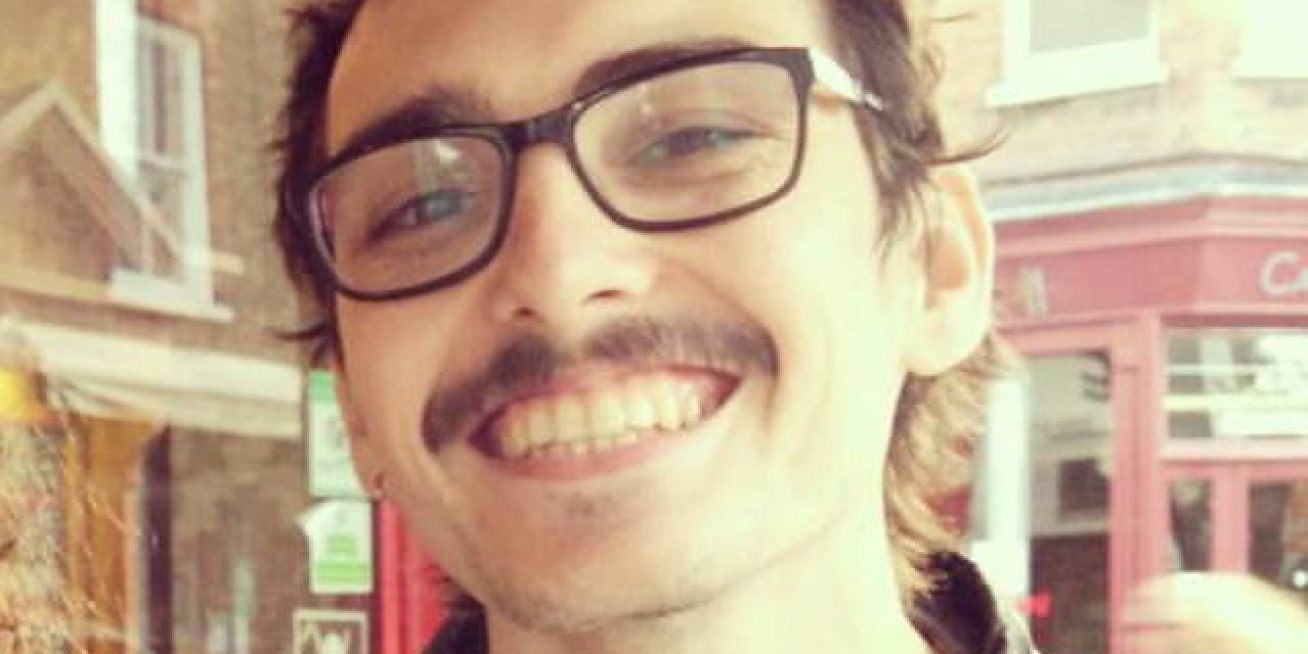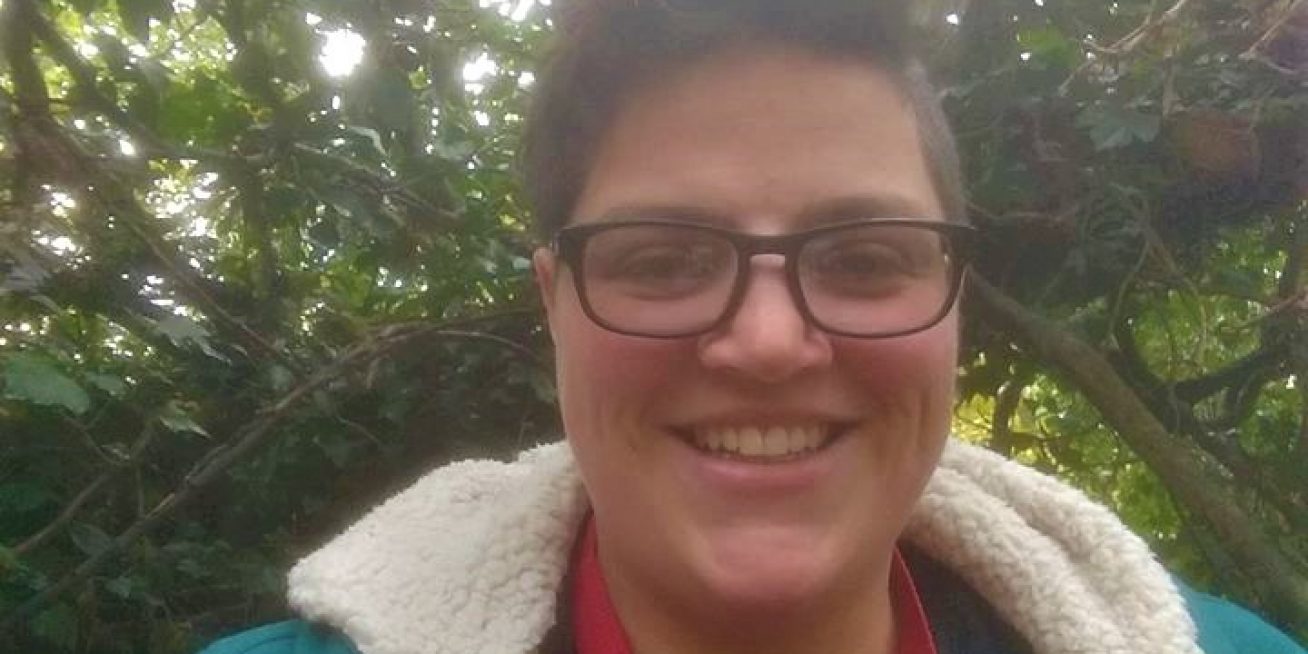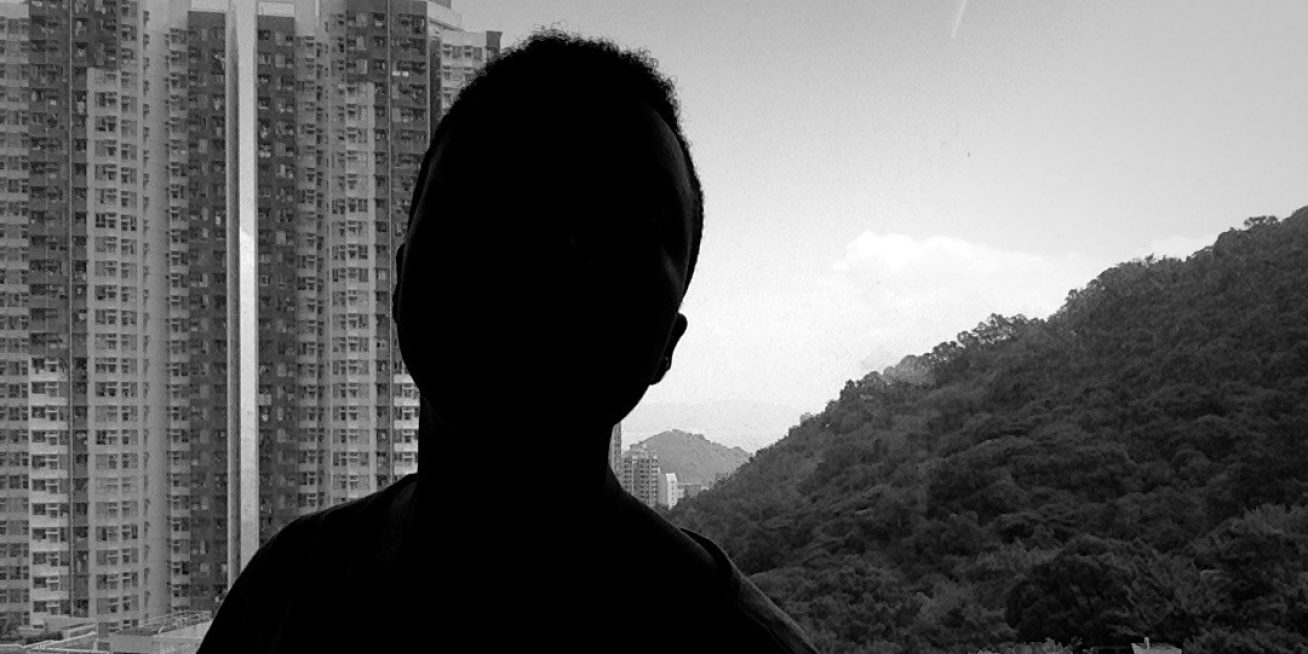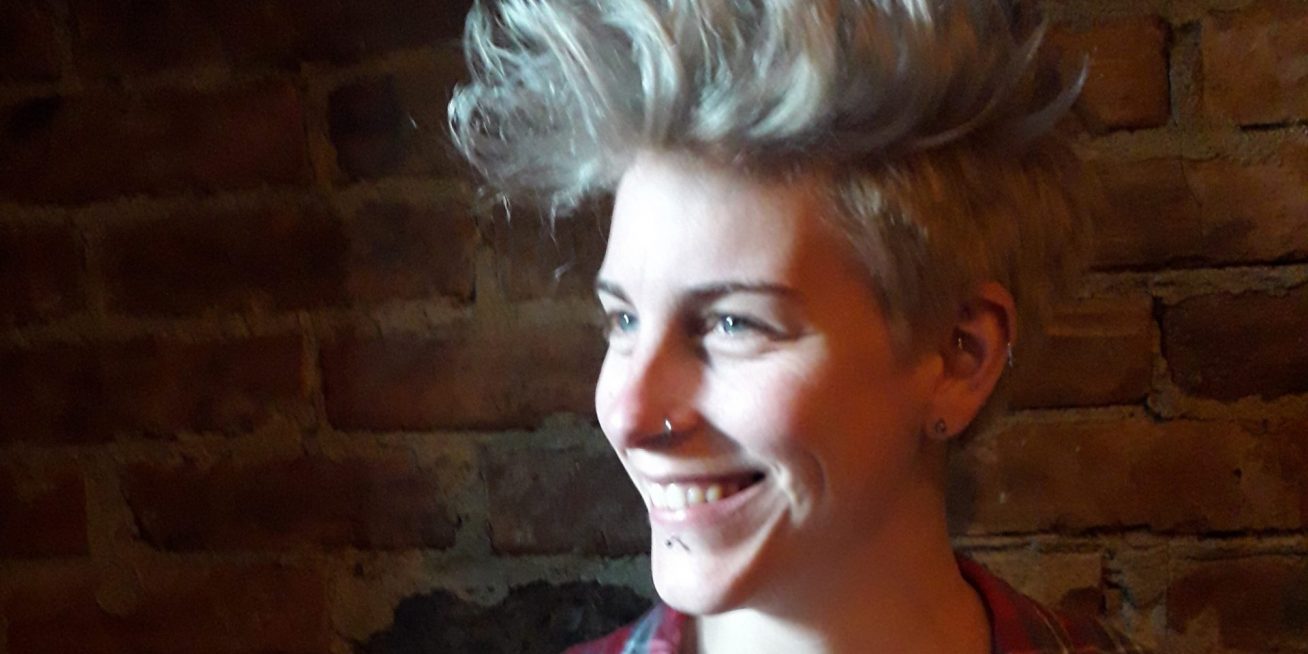Offering support on the women's minibus
Driving the women's minibus at the University of Leeds gave Jackie a chance to talk about being lesbian and present herself as a role model but it led to unexpected consequences.
Badge on Story Page from Intentional Promotions collection created by Jackie Clayton and Rob Preston
TRANSCRIPT
JC: I never told you about the women’s minibus – you remember the women’s minibus, don’t you?INTERVIEWER: Tell me about that.
YL: At the university [laughs]
JC: So because of like, after the Yorkshire Ripper a lot less women applied to Leeds University. So, to encourage women to come to Leeds University they offered a women’s minibus service – I don’t know if it’s still running. And when I got to 21 I could drive that, so I volunteered to drive it – it was a paid job, y’know, they did pay you to do it, and I was driving that. And this was after Section 28, and I’d have a bus full of women and I would drive all around, but as soon as the back shut and I set off I would be like, I have now got a captive audience, so they’re going to get – this was all part of how to promote homosexuality was like, ‘right, they’re gonna get a speech’, so they’re gonna get me, I outed myself every single time – ‘yes, I’m Jackie, I’m a lesbian and I’m probably the first one you’ve met. If not, wow, that’s amazing’, and then I’d just say, ‘this is all about the fact that when you grow up, and if you get married and have children and one of your kids turns out to be gay, you’ve already met somebody that’s got a super, great life, and marvellous and confident and your kids can be that too’. I just kinda went along this line. I mean… I never really thought about what I was doing there, it was kinda, I’m gonna do this cos I’m sure this is a great idea.
But what I didn’t expect – word got around of what I was doing, and people would wait for my bus. Women would wait for my bus to get in, cos they ran every half an hour, and they would wait until I – and we would drive every hour, so we had an hour to get back – and they’d wait for my bus, or they’d wait and they’d come for the days I was driving, cos they wanted to sit on the bus and they wanted to talk to me. And some women would get in, they’d sit up front – there was three seats at the front and two like benches at the back, so there’d be 17 women and, I think, 14 in the back and then three could sit in the front. And often women would come and sit in the front and they’d say to me, ‘drop me off last’. And I was like, yeah, yeah, y’know, fine, open for that. And I never knew what was gonna happen.
Cos I always had in my head as well there’s an element of safety, is if you drop somebody off last, are they going to be dangerous or is it going to be something nice, I never really knew, but well, pretty much all of the time, it was somebody who wanted to admit that they were gay and they were scared and it was the first time they’d ever told anybody, and – they just wanted to talk. And I was really glad about that, because when they would tell me stuff, I had no idea what to say, I didn’t know if I could say something, should I say something comforting, should I suggest like a telephone number to call or something like that? I’d no idea, so mostly I just listened, which actually probably turned out to be the best thing to do. But I – I think I then took on a responsibility that I’d never expected. Cos I was just experimenting – I was trying to challenge things. I didn’t expect then for people to turn ‘round with such vulnerable emotions and to share with me. But they did, repeatedly. But there was nobody else to talk to, and that was the key thing. I’d not realised that that would happen, cos I didn’t – they had nowhere else to turn.







